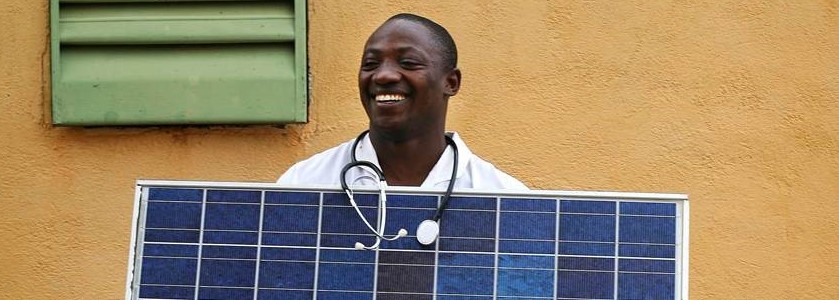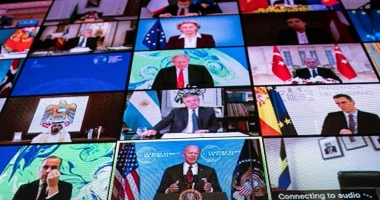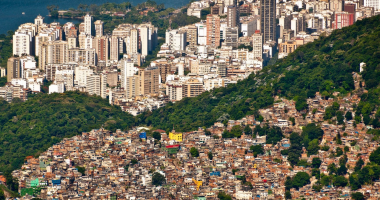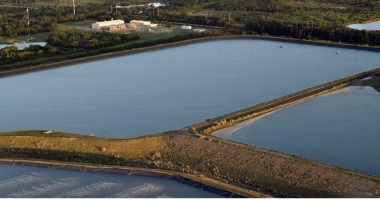Climate, Health and Equity Brief
Gary Cohen & Making Health Care Healthier
February 20, 2020
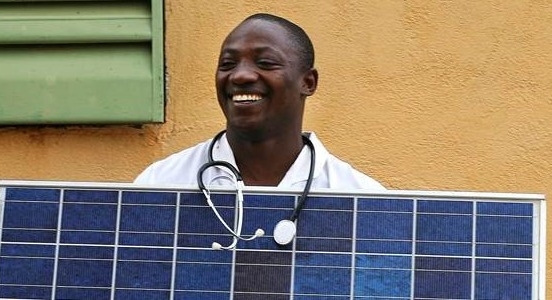
Conversations with those taking action at the intersection of climate change and public health.
As part of our weekly Climate, Health & Equity Brief, we’re pleased to share a periodic interview series with leaders working at the intersection of climate change, health and equity. This month we spoke with Gary Cohen, president and co-founder of Health Care Without Harm and Practice Greenhealth.

Climate change was not originally your focus, or the focus of Health Care Without Harm – tell us about your climate change evolution?
Initially, we focused on the health care sector’s toxic chemical footprint. Then we began to understand that the climate crisis is fundamentally a public health and human rights crisis that will impact everyone on the planet. As people’s health is impacted, they will turn to the health sector to address these impacts, so health care will be on the frontlines of this crisis. Ironically, the health care sector has an enormous climate footprint, contributing 4.4% of total global greenhouse gas emissions. Over the last few years there have been important scientific and policy documents that validated our analysis that continued addiction to fossil fuels was killing us and the planet’s ability to sustain us. In response, we have built a network that includes 1250 institutional partners in 62 countries to address the climate crisis as the most important intervention the health sector can make in this century.
Climate change is often seen as primarily an environmental issue – why is it so important to see it as an issue of health and equity?
Climate change has been seen as an issue that impacts polar bears and melting ice caps – far from most people’s daily lives. Once people understand that this crisis is about wildfires in California, Montana and Australia, hurricanes in North Carolina and Florida, typhoons in the Philippines, the spread of dengue fever and malaria, extreme heat, and poisoned air all over the world, they will realize the climate crisis has come home to them. Additionally, the people with the least political power and resources to defend themselves will be the hardest hit. Climate is the ultimate environmental justice issue.
Tell us what the health care system and health professionals can, and should, be doing to fight climate change?
The health sector is at the center of this crisis and has three critical roles to play. First, it needs to anchor the resilience of the communities it serves. Clinics and hospitals need to be the last buildings standing in extreme weather events and health care professionals need to understand the increased vulnerabilities of their communities. Second, health care needs to address its own climate footprint and leverage its supply chains to squeeze the carbon out of their products and services. Health care is almost 20% of the US economy and can use its purchasing power to model the transition to a climate smart economy. Third, doctors and nurses must use their trusted positions in societies to become messengers and advocates for climate solutions and to change the narrative to focus on health.
The health philanthropic community has largely ignored climate change. Why is that and what kind of projects should local, regional, national and international funders be focused on?
The mainstream climate philanthropy community has focused on technological fixes to address the climate crisis. Their efforts have focused on the important wedges of the economy that need to be decarbonized, but they have forgotten to focus on people and their lives. Once we see the climate crisis as a health and equity issue, a whole array of opportunities opens up. First, there are larger pots of money in health philanthropy than in environmental giving, so we can increase the total amount going to climate solutions by partnering with health philanthropists.
We can also partner with community-based foundations and hospital systems that have targeted funding in their communities. And we can also fund environmental justice groups that have been traditionally marginalized but often have incredible knowledge and solutions. We can support health systems and health professionals becoming advocates for state and federal climate policies to transform energy, transportation, agriculture and carbon pricing.
What is your greatest fear when it comes to climate change?
We are witnessing the rise of fossil fuel fascism. We are seeing dictators in power that are completely aligned with the fossil fuel industries, whether that’s the United States, Russia, Saudi Arabia, Poland, Turkey or Australia. In the past, it was clear the fossil fuel industry thrived in countries where environmental, public health, and human rights protections were weak. In this next stage of global crisis, it is becoming clearer that the fossil fuel industry requires authoritarian regimes to survive.
Your greatest hope?
My greatest hope is that we are seeing the birth of the largest social movement in human history, the movement for planetary survival. People, especially young people, are waking up and getting activated all over the world. This emerging movement is deconstructing the myth that a healthy environment and a healthy economy are at odds – in fact, the only economy possible on the planet in the 21st century is one that is built on renewable energy, green chemistry and sustainable agriculture. And this movement also understands that we need to wrest control over our political and regulatory systems from the very industries that have brought us to the brink of catastrophe.

)

